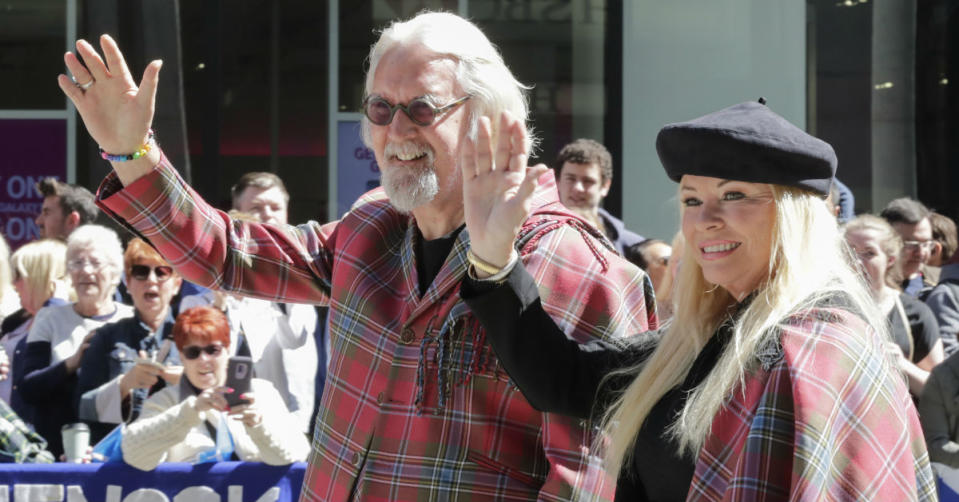Billy Connolly and wife Pamela Stephenson now need separate beds because of Parkinson's disease effects

Billy Connolly has said he and wife Pamela Stephenson now have separate beds because the effects of his Parkinson’s disease make it impossible to sleep next to him.
The comedian, who has been married to psychologist Stephenson for 30 years, praised her infinite patience in helping him to manage his deteriorating health.
Connolly, 76, told The Observer: “I sleep like a wild animal. Laughing and singing or having fights. Pamela has to sleep in another bed.”
Read more: Billy Connolly says he is ‘not slipping away’
He was diagnosed with Parkinson’s disease in 2013, at the same time as he was treated for prostate cancer, and has since made a documentary about his experience of the degenerative condition called Billy Connolly: Made in Scotland.
Connolly admitted he had to rely on his wife a lot for help with everyday tasks, including getting out of bed and fluffing his pillows.
He said: “She didn’t do it right last night. And you lie there thinking: ‘Can I really ask her to come back and do it again? Or should I put up with it?’ So far, she has never tutted. And she’s a rather attractive nurse.”
The pair now live in the Florida Keys after moving from New York because Connolly felt he would be better able to cope with the climate as his condition progressed.
Although Connolly’s documentary painted a negative impression of the direction in which his health is heading, he said he has “good days and bad days”, and doesn’t feel that the way he presented things in his film is a fair reflection of his everyday life, adding: “I made an arse of it on the film I made, where I said I was wasting away.”
Read more: Pamela Stephenson calls Michael Parkinson ‘a daft old fart’
Connolly talked about finding the humour in his situation and said he had corrected one doctor, saying he didn’t have an incurable disease, just one that a cure hadn’t yet been found for. He said he needed to have something positive to hope for even if medical advances weren’t made quickly enough to help him.
The comedian said his diagnosis had helped him to see the good in many people, as they went out of their way to offer help when he needed it.
“If you say, ‘I can’t get up, could you help me out of my chair please?’ no one ever says ‘Why?’” he said. “They just do it. Maybe it’s just me, but I live in this magical life.”

 generic
generic 
